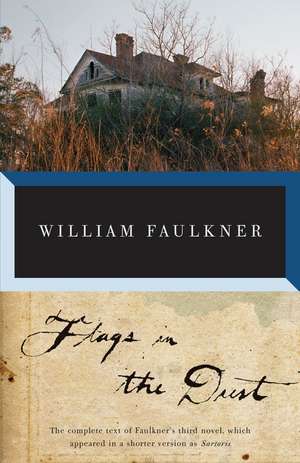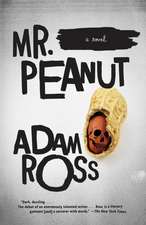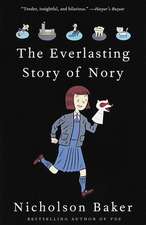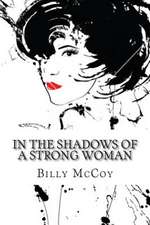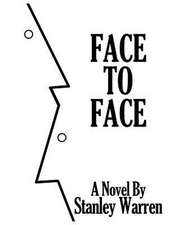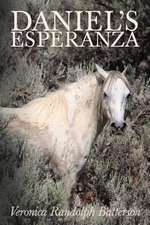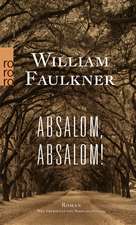Flags in the Dust: Spotted Horses, Old Man, the Bear: Vintage International
Autor William Faulkneren Limba Engleză Paperback – 31 dec 2011
Din seria Vintage International
-
 Preț: 99.89 lei
Preț: 99.89 lei -
 Preț: 126.36 lei
Preț: 126.36 lei -
 Preț: 74.80 lei
Preț: 74.80 lei -
 Preț: 71.65 lei
Preț: 71.65 lei -
 Preț: 67.08 lei
Preț: 67.08 lei -
 Preț: 95.10 lei
Preț: 95.10 lei -
 Preț: 98.35 lei
Preț: 98.35 lei -
 Preț: 99.82 lei
Preț: 99.82 lei -
 Preț: 68.16 lei
Preț: 68.16 lei -
 Preț: 79.37 lei
Preț: 79.37 lei -
 Preț: 74.37 lei
Preț: 74.37 lei -
 Preț: 81.67 lei
Preț: 81.67 lei -
 Preț: 90.54 lei
Preț: 90.54 lei -
 Preț: 104.50 lei
Preț: 104.50 lei -
 Preț: 90.95 lei
Preț: 90.95 lei -
 Preț: 99.51 lei
Preț: 99.51 lei -
 Preț: 78.07 lei
Preț: 78.07 lei -
 Preț: 107.68 lei
Preț: 107.68 lei -
 Preț: 87.01 lei
Preț: 87.01 lei -
 Preț: 91.14 lei
Preț: 91.14 lei -
 Preț: 101.58 lei
Preț: 101.58 lei -
 Preț: 94.04 lei
Preț: 94.04 lei -
 Preț: 90.13 lei
Preț: 90.13 lei -
 Preț: 117.33 lei
Preț: 117.33 lei -
 Preț: 69.91 lei
Preț: 69.91 lei -
 Preț: 97.34 lei
Preț: 97.34 lei -
 Preț: 95.85 lei
Preț: 95.85 lei -
 Preț: 98.37 lei
Preț: 98.37 lei -
 Preț: 71.62 lei
Preț: 71.62 lei -
 Preț: 131.55 lei
Preț: 131.55 lei -
 Preț: 105.00 lei
Preț: 105.00 lei -
 Preț: 89.46 lei
Preț: 89.46 lei -
 Preț: 77.34 lei
Preț: 77.34 lei -
 Preț: 119.36 lei
Preț: 119.36 lei -
 Preț: 102.92 lei
Preț: 102.92 lei -
 Preț: 133.39 lei
Preț: 133.39 lei -
 Preț: 95.70 lei
Preț: 95.70 lei -
 Preț: 97.57 lei
Preț: 97.57 lei -
 Preț: 71.72 lei
Preț: 71.72 lei -
 Preț: 109.54 lei
Preț: 109.54 lei -
 Preț: 74.47 lei
Preț: 74.47 lei -
 Preț: 71.25 lei
Preț: 71.25 lei -
 Preț: 74.47 lei
Preț: 74.47 lei -
 Preț: 105.63 lei
Preț: 105.63 lei -
 Preț: 99.30 lei
Preț: 99.30 lei -
 Preț: 85.70 lei
Preț: 85.70 lei -
 Preț: 120.26 lei
Preț: 120.26 lei -
 Preț: 79.37 lei
Preț: 79.37 lei -
 Preț: 99.83 lei
Preț: 99.83 lei -
 Preț: 99.60 lei
Preț: 99.60 lei
Preț: 110.60 lei
Nou
Puncte Express: 166
Preț estimativ în valută:
21.17€ • 22.04$ • 17.89£
21.17€ • 22.04$ • 17.89£
Carte disponibilă
Livrare economică 14-28 februarie
Preluare comenzi: 021 569.72.76
Specificații
ISBN-13: 9780307946768
ISBN-10: 0307946762
Pagini: 408
Dimensiuni: 130 x 203 x 25 mm
Greutate: 0.32 kg
Editura: VINTAGE BOOKS
Seria Vintage International
ISBN-10: 0307946762
Pagini: 408
Dimensiuni: 130 x 203 x 25 mm
Greutate: 0.32 kg
Editura: VINTAGE BOOKS
Seria Vintage International
Notă biografică
William Faulkner was born in New Albany, Mississippi, on September 25, 1897. Faulkner had begun writing poems when he was a schoolboy and published a poetry collection in 1924 at his own expense. In 1950, Faulkner traveled to Sweden to accept the 1949 Nobel Prize for Literature. He died of a heart attack on July 6, 1962.
Extras
One
1
As usual old man Falls had brought John Sartoris into the room with him, had walked the three miles in from the county Poor Farm, fetching, like an odor, like the clean dusty smell of his faded overalls, the spirit of the dead man into that room where the dead man's son sat and where the two of them, pauper and banker, would sit for a half an hour in the company of him who had passed beyond death and then returned.
Freed as he was of time and flesh, he was a far more palpable presence than either of the two old men who sat shouting periodically into one another's deafness while the business of the bank went forward in the next room and people in the adjoining stores on either side listened to the indistinguishable uproar of their voices coming through the walls. He was far more palpable than the two old men cemented by a common deafness to a dead period and so drawn thin by the slow attenuation of days; even now, although old man Falls had departed to tramp the three miles back to that which he now called home, John Sartoris seemed to loom still in the room, above and about his son, with his bearded, hawklike face, so that as old Bayard sat with his crossed feet propped against the corner of the cold hearth, holding the pipe in his hand, it seemed to him that he could hear his father's breathing even, as though that other were so much more palpable than mere transiently articulated clay as to even penetrate into the uttermost citadel of silence in which his son lived.
The bowl of the pipe was ornately carved and it was charred with much usage, and on the bit were the prints of his father's teeth, where he had left the very print of his ineradicable bones as though in enduring stone, like the creatures of that prehistoric day that were too grandly conceived and executed either to exist very long or to vanish utterly when dead from an earth shaped and furnished for punier things. Old Bayard sat holding the pipe in his hand.
"What are you giving it to me for, after all this time?" he had asked, fingering the pipe, and old man Falls answered.
"Well, I reckon I've kept it long as Cunnel aimed for me to," old man Falls answered. "A po' house aint no fitten place for anything of his'n, Bayard. And I'm goin' on ninety-fo' year old."
Later he gathered up his small parcels and left, but still old Bayard sat for some time, the pipe in his hand, rubbing the bowl slowly with his thumb. After a while John Sartoris departed also, withdrawn rather to that place where the peaceful dead contemplate their glamorous frustrations, and old Bayard rose and thrust the pipe into his pocket and took a cigar from the humidor on the mantel. As he struck the match the door across the room opened and a man wearing a green eyeshade entered and approached.
"Simon's here, Colonel," he said in a voice utterly without inflection.
"What?" Old Bayard said across the match.
"Simon's come."
"Oh. All right."
The other turned and went out. Old Bayard flung the match into the grate and put the cigar in his pocket and closed his desk and took his black felt hat from the top of it and followed the other from the room. The man in the eyeshade and the cashier were busy beyond the grille. Old Bayard stalked on through the lobby and passed through the door with its drawn green shade and emerged upon the street, where Simon in a linen duster and an ancient top-hat held the matched geldings glittering in the spring afternoon, at the curb.
There was a hitching-post there, which old Bayard retained with a testy disregard of industrial progress, but Simon never used it. Until the door opened and Bayard emerged from behind the drawn shades bearing the words "Bank Closed" in cracked gold leaf, Simon retained his seat, the reins in his left hand and the thong of the whip caught smartly back in his right and usually the unvarying and seemingly incombustible fragment of a cigar at a swaggering angle in his black face, talking to the shining team in a steady, lover-like flow. He spoiled horses. He admired Sartorises and he had for them a warmly protective tenderness, but he loved horses, and beneath his hands the sorriest beast bloomed and acquired comeliness like a caressed woman, temperament like an opera star.
Old Bayard closed the door behind him and crossed to the carriage with that stiff erectness which, as a countryman once remarked, if he ever stumbled, would meet itself falling down. One or two passers and a merchant or so in the adjacent doorways saluted him with a sort of florid servility, and behind him the shade on one window drew aside upon the disembodied face of the man in the green eye-shade. The book- keeper was a hillman of indeterminate age, a silent man who performed his duties with tedious slow care and who watched Bayard constantly and covertly all the while he was in view.
Nor did Simon dismount even then. With his race's fine feeling for potential theatrics he drew himself up and arranged the limp folds of the duster, communicating by some means the histrionic moment to the horses so that they too flicked their glittering coats and tossed their leashed heads, and into Simon's wizened black face there came an expression indescribably majestical as he touched his whiphand to his hatbrim. Bayard got into the carriage and Simon clucked to the horses, and the onlookers, halted to admire the momentary drama of the departure, fell behind.
There was something different in Simon's air today, in the very shape of his back and the angle of his hat: he appeared to be bursting with something momentous and ill-contained. But he withheld it for the time being, and at a dashing, restrained pace he drove among the tethered wagons about the square and swung into a broad street where what Bayard called paupers sped back and forth in automobiles, and withheld it until the town was behind them and they trotted on across burgeoning countryside cluttered still with gasoline-propelled paupers but at greater intervals, and his employer had settled back for the changing and peaceful monotony of the four-mile drive. Then Simon checked the team to a more sedate pace and turned his head.
His voice was not particularly robust nor resonant, yet somehow he could talk to old Bayard without difficulty. Others must shout in order to penetrate that wall of deafness beyond which Bayard lived; yet Simon could and did hold long, rambling conversations with him in that monotonous, rather high sing-song of his, particularly while in the carriage, the vibration of which helped Bayard's hearing a little.
"Mist' Bayard done got home," Simon remarked in a conversational tone.
Old Bayard sat perfectly and furiously still for a moment while his heart went on, a little too fast and a little too lightly, cursing his grandson for a furious moment; sat so still that Simon looked back and found him gazing quietly out across the land. Simon raised his voice a little.
"He got offen de two oclock train," he continued. "Jumped off de wrong side and lit out th'ough de woods. Section hand seed 'im. Only he aint never come out home yit when I lef'. I thought he wuz wid you, maybe." Dust spun from beneath the horses' feet and moiled in a sluggish cloud behind them. Against the thickening hedgerows their shadow rushed in failing surges, with twinkling spokes and high-stepping legs in a futility of motion without progress. "Wouldn't even git off at de dee- po," Simon continued, with a kind of fretful exasperation. "De dee-po his own folks built. Jumpin' offen de bline side like a hobo. He never even had on no sojer-clothes. Jes a suit, lak a drummer er somethin'. And when I 'members dem shiny boots and dem light yaller pants and dat 'ere double-jinted backin'-up strop he wo' home las' year. . . ." He turned and looked back again. "Cunnel, you reckon dem war folks is done somethin' ter him?"
"What do you mean?" Bayard demanded. "Is he lame?"
"I mean, him sneakin' into his own town. Sneakin' into town, on de ve'y railroad his own gran'pappy built, jes' like he wuz trash. Dem foreign folks done done somethin' ter him, er dey done sot dey po-lice atter him. I kep' a-tellin' him when he fust went off to dat 'ere foreign war him and Mr Johnny neither never had no business at--"
"Drive on," Bayard said. . . . . . . "Drive on, damn your black hide."
Simon clucked to the horses and shook them into a swifter gait. The road went on between hedgerows parallelling them with the senseless terrific antics of their shadow. Beyond the bordering gums and locusts and massed vines, fields new-broken or being broken spread on toward patches of woodland newly green and splashed with dogwood and judas trees. Behind laborious plows viscid shards of new-turned earth glinted damply in the sun.
This was upland country, lying in tilted slopes against the unbroken blue of the hills, but soon the road descended sheerly into a valley of good broad fields richly somnolent in the levelling afternoon, and presently they drove upon Bayard's own land, and from time to time a plowman lifted his hand to the passing carriage. Then the road approached the railroad and crossed it, and at last the house John Sartoris had built and rebuilt stood among locusts and oaks and Simon swung between iron gates and into a curving drive.
There was a bed of salvia where a Yankee patrol had halted on a day long ago. Simon brought up here with a flourish and Bayard descended and Simon clucked to the team again and rolled his cigar to a freer angle, and took the road back to town.
Bayard stood for a while before his house, but the white simplicity of it dreamed unbroken among ancient sunshot trees. Wistaria mounting one end of the veranda had bloomed and fallen, and a faint drift of shattered petals lay palely about the dark roots of it and about the roots of a rose trained onto the same frame. The rose was slowly but steadily choking the other vine, and it bloomed now thickly with buds no bigger than a thumbnail and blown flowers no larger than silver dollars, myriad, odorless and unpickable.
But the house itself was still and serenely benignant, and he mounted to the empty, colonnaded veranda and crossed it and entered the hall. The house was silent, richly desolate of motion or any sound.
"Bayard."
The stairway with its white spindles and red carpet mounted in a tall slender curve into upper gloom. From the center of the ceiling hung a chandelier of crystal prisms and shades, fitted originally for candles but since wired for electricity; to the right of the entrance, beside folding doors rolled back upon a dim room emanating an atmosphere of solemn and seldom violated stateliness and known as the parlor, stood a tall mirror filled with grave obscurity like a still pool of evening water. At the opposite end of the hall checkered sunlight fell in a long slant across the door, and from somewhere beyond the bar of sunlight a voice rose and fell in a steady preoccupied minor, like a chant. The words were not distinguishable, but Bayard could not hear them at all. He raised his voice again.
"Bayard."
The chanting ceased, and as he turned toward the stairs a tall mulatto woman appeared in the slanting sunlight without the back door and came sibilantly into the house. Her faded blue garment was pinned up about her knees and it was darkly and irregularly blotched. Beneath it her shanks were straight and lean as the legs of a tall bird, and her bare feet were pale coffee-splashes on the dark polished floor.
"Wuz you callin' somebody, Cunnel?" she said, raising her voice to penetrate his deafness. Bayard paused with his hand on the walnut newel post and looked down at the woman's pleasant yellow face.
"Has anybody come in this afternoon?" he asked.
"Why, naw, suh," Elnora answered. "Dey aint nobody here a-tall, dat I knows about. Miss Jenny done gone to huh club-meetin' in town dis evenin'," she added. Bayard stood with his foot raised to the step, glowering at her.
"Why in hell cant you niggers tell me the truth about things?" he raged suddenly. "Or not tell me anything at all?"
"Lawd, Cunnel, who'd be comin' out here, lessen you er Miss Jenny sont 'um?" But he had gone on, tramping furiously up the stairs. The woman looked after him, then she raised her voice: "Does you want Isom, er anything?" He did not look back. Perhaps he had not heard her, and she stood and watched him out of sight. "He's gittin' old," she said to herself quietly, and she turned on her sibilant bare feet and returned down the hall whence she had come.
Bayard stopped again in the upper hall. The western windows were closed with latticed blinds, through which sunlight seeped in yellow dissolving bars that but served to increase the gloom. At the opposite end a tall door opened upon a shallow grilled balcony which offered the valley and the cradling semicircle of the eastern hills in panorama. On either side of this door was a narrow window set with leaded panes of vari-colored glass that, with the bearer of them, constituted John Sartoris' mother's deathbed legacy to him, which his youngest sister had brought from Carolina in a straw-filled hamper in '69.
1
As usual old man Falls had brought John Sartoris into the room with him, had walked the three miles in from the county Poor Farm, fetching, like an odor, like the clean dusty smell of his faded overalls, the spirit of the dead man into that room where the dead man's son sat and where the two of them, pauper and banker, would sit for a half an hour in the company of him who had passed beyond death and then returned.
Freed as he was of time and flesh, he was a far more palpable presence than either of the two old men who sat shouting periodically into one another's deafness while the business of the bank went forward in the next room and people in the adjoining stores on either side listened to the indistinguishable uproar of their voices coming through the walls. He was far more palpable than the two old men cemented by a common deafness to a dead period and so drawn thin by the slow attenuation of days; even now, although old man Falls had departed to tramp the three miles back to that which he now called home, John Sartoris seemed to loom still in the room, above and about his son, with his bearded, hawklike face, so that as old Bayard sat with his crossed feet propped against the corner of the cold hearth, holding the pipe in his hand, it seemed to him that he could hear his father's breathing even, as though that other were so much more palpable than mere transiently articulated clay as to even penetrate into the uttermost citadel of silence in which his son lived.
The bowl of the pipe was ornately carved and it was charred with much usage, and on the bit were the prints of his father's teeth, where he had left the very print of his ineradicable bones as though in enduring stone, like the creatures of that prehistoric day that were too grandly conceived and executed either to exist very long or to vanish utterly when dead from an earth shaped and furnished for punier things. Old Bayard sat holding the pipe in his hand.
"What are you giving it to me for, after all this time?" he had asked, fingering the pipe, and old man Falls answered.
"Well, I reckon I've kept it long as Cunnel aimed for me to," old man Falls answered. "A po' house aint no fitten place for anything of his'n, Bayard. And I'm goin' on ninety-fo' year old."
Later he gathered up his small parcels and left, but still old Bayard sat for some time, the pipe in his hand, rubbing the bowl slowly with his thumb. After a while John Sartoris departed also, withdrawn rather to that place where the peaceful dead contemplate their glamorous frustrations, and old Bayard rose and thrust the pipe into his pocket and took a cigar from the humidor on the mantel. As he struck the match the door across the room opened and a man wearing a green eyeshade entered and approached.
"Simon's here, Colonel," he said in a voice utterly without inflection.
"What?" Old Bayard said across the match.
"Simon's come."
"Oh. All right."
The other turned and went out. Old Bayard flung the match into the grate and put the cigar in his pocket and closed his desk and took his black felt hat from the top of it and followed the other from the room. The man in the eyeshade and the cashier were busy beyond the grille. Old Bayard stalked on through the lobby and passed through the door with its drawn green shade and emerged upon the street, where Simon in a linen duster and an ancient top-hat held the matched geldings glittering in the spring afternoon, at the curb.
There was a hitching-post there, which old Bayard retained with a testy disregard of industrial progress, but Simon never used it. Until the door opened and Bayard emerged from behind the drawn shades bearing the words "Bank Closed" in cracked gold leaf, Simon retained his seat, the reins in his left hand and the thong of the whip caught smartly back in his right and usually the unvarying and seemingly incombustible fragment of a cigar at a swaggering angle in his black face, talking to the shining team in a steady, lover-like flow. He spoiled horses. He admired Sartorises and he had for them a warmly protective tenderness, but he loved horses, and beneath his hands the sorriest beast bloomed and acquired comeliness like a caressed woman, temperament like an opera star.
Old Bayard closed the door behind him and crossed to the carriage with that stiff erectness which, as a countryman once remarked, if he ever stumbled, would meet itself falling down. One or two passers and a merchant or so in the adjacent doorways saluted him with a sort of florid servility, and behind him the shade on one window drew aside upon the disembodied face of the man in the green eye-shade. The book- keeper was a hillman of indeterminate age, a silent man who performed his duties with tedious slow care and who watched Bayard constantly and covertly all the while he was in view.
Nor did Simon dismount even then. With his race's fine feeling for potential theatrics he drew himself up and arranged the limp folds of the duster, communicating by some means the histrionic moment to the horses so that they too flicked their glittering coats and tossed their leashed heads, and into Simon's wizened black face there came an expression indescribably majestical as he touched his whiphand to his hatbrim. Bayard got into the carriage and Simon clucked to the horses, and the onlookers, halted to admire the momentary drama of the departure, fell behind.
There was something different in Simon's air today, in the very shape of his back and the angle of his hat: he appeared to be bursting with something momentous and ill-contained. But he withheld it for the time being, and at a dashing, restrained pace he drove among the tethered wagons about the square and swung into a broad street where what Bayard called paupers sped back and forth in automobiles, and withheld it until the town was behind them and they trotted on across burgeoning countryside cluttered still with gasoline-propelled paupers but at greater intervals, and his employer had settled back for the changing and peaceful monotony of the four-mile drive. Then Simon checked the team to a more sedate pace and turned his head.
His voice was not particularly robust nor resonant, yet somehow he could talk to old Bayard without difficulty. Others must shout in order to penetrate that wall of deafness beyond which Bayard lived; yet Simon could and did hold long, rambling conversations with him in that monotonous, rather high sing-song of his, particularly while in the carriage, the vibration of which helped Bayard's hearing a little.
"Mist' Bayard done got home," Simon remarked in a conversational tone.
Old Bayard sat perfectly and furiously still for a moment while his heart went on, a little too fast and a little too lightly, cursing his grandson for a furious moment; sat so still that Simon looked back and found him gazing quietly out across the land. Simon raised his voice a little.
"He got offen de two oclock train," he continued. "Jumped off de wrong side and lit out th'ough de woods. Section hand seed 'im. Only he aint never come out home yit when I lef'. I thought he wuz wid you, maybe." Dust spun from beneath the horses' feet and moiled in a sluggish cloud behind them. Against the thickening hedgerows their shadow rushed in failing surges, with twinkling spokes and high-stepping legs in a futility of motion without progress. "Wouldn't even git off at de dee- po," Simon continued, with a kind of fretful exasperation. "De dee-po his own folks built. Jumpin' offen de bline side like a hobo. He never even had on no sojer-clothes. Jes a suit, lak a drummer er somethin'. And when I 'members dem shiny boots and dem light yaller pants and dat 'ere double-jinted backin'-up strop he wo' home las' year. . . ." He turned and looked back again. "Cunnel, you reckon dem war folks is done somethin' ter him?"
"What do you mean?" Bayard demanded. "Is he lame?"
"I mean, him sneakin' into his own town. Sneakin' into town, on de ve'y railroad his own gran'pappy built, jes' like he wuz trash. Dem foreign folks done done somethin' ter him, er dey done sot dey po-lice atter him. I kep' a-tellin' him when he fust went off to dat 'ere foreign war him and Mr Johnny neither never had no business at--"
"Drive on," Bayard said. . . . . . . "Drive on, damn your black hide."
Simon clucked to the horses and shook them into a swifter gait. The road went on between hedgerows parallelling them with the senseless terrific antics of their shadow. Beyond the bordering gums and locusts and massed vines, fields new-broken or being broken spread on toward patches of woodland newly green and splashed with dogwood and judas trees. Behind laborious plows viscid shards of new-turned earth glinted damply in the sun.
This was upland country, lying in tilted slopes against the unbroken blue of the hills, but soon the road descended sheerly into a valley of good broad fields richly somnolent in the levelling afternoon, and presently they drove upon Bayard's own land, and from time to time a plowman lifted his hand to the passing carriage. Then the road approached the railroad and crossed it, and at last the house John Sartoris had built and rebuilt stood among locusts and oaks and Simon swung between iron gates and into a curving drive.
There was a bed of salvia where a Yankee patrol had halted on a day long ago. Simon brought up here with a flourish and Bayard descended and Simon clucked to the team again and rolled his cigar to a freer angle, and took the road back to town.
Bayard stood for a while before his house, but the white simplicity of it dreamed unbroken among ancient sunshot trees. Wistaria mounting one end of the veranda had bloomed and fallen, and a faint drift of shattered petals lay palely about the dark roots of it and about the roots of a rose trained onto the same frame. The rose was slowly but steadily choking the other vine, and it bloomed now thickly with buds no bigger than a thumbnail and blown flowers no larger than silver dollars, myriad, odorless and unpickable.
But the house itself was still and serenely benignant, and he mounted to the empty, colonnaded veranda and crossed it and entered the hall. The house was silent, richly desolate of motion or any sound.
"Bayard."
The stairway with its white spindles and red carpet mounted in a tall slender curve into upper gloom. From the center of the ceiling hung a chandelier of crystal prisms and shades, fitted originally for candles but since wired for electricity; to the right of the entrance, beside folding doors rolled back upon a dim room emanating an atmosphere of solemn and seldom violated stateliness and known as the parlor, stood a tall mirror filled with grave obscurity like a still pool of evening water. At the opposite end of the hall checkered sunlight fell in a long slant across the door, and from somewhere beyond the bar of sunlight a voice rose and fell in a steady preoccupied minor, like a chant. The words were not distinguishable, but Bayard could not hear them at all. He raised his voice again.
"Bayard."
The chanting ceased, and as he turned toward the stairs a tall mulatto woman appeared in the slanting sunlight without the back door and came sibilantly into the house. Her faded blue garment was pinned up about her knees and it was darkly and irregularly blotched. Beneath it her shanks were straight and lean as the legs of a tall bird, and her bare feet were pale coffee-splashes on the dark polished floor.
"Wuz you callin' somebody, Cunnel?" she said, raising her voice to penetrate his deafness. Bayard paused with his hand on the walnut newel post and looked down at the woman's pleasant yellow face.
"Has anybody come in this afternoon?" he asked.
"Why, naw, suh," Elnora answered. "Dey aint nobody here a-tall, dat I knows about. Miss Jenny done gone to huh club-meetin' in town dis evenin'," she added. Bayard stood with his foot raised to the step, glowering at her.
"Why in hell cant you niggers tell me the truth about things?" he raged suddenly. "Or not tell me anything at all?"
"Lawd, Cunnel, who'd be comin' out here, lessen you er Miss Jenny sont 'um?" But he had gone on, tramping furiously up the stairs. The woman looked after him, then she raised her voice: "Does you want Isom, er anything?" He did not look back. Perhaps he had not heard her, and she stood and watched him out of sight. "He's gittin' old," she said to herself quietly, and she turned on her sibilant bare feet and returned down the hall whence she had come.
Bayard stopped again in the upper hall. The western windows were closed with latticed blinds, through which sunlight seeped in yellow dissolving bars that but served to increase the gloom. At the opposite end a tall door opened upon a shallow grilled balcony which offered the valley and the cradling semicircle of the eastern hills in panorama. On either side of this door was a narrow window set with leaded panes of vari-colored glass that, with the bearer of them, constituted John Sartoris' mother's deathbed legacy to him, which his youngest sister had brought from Carolina in a straw-filled hamper in '69.
